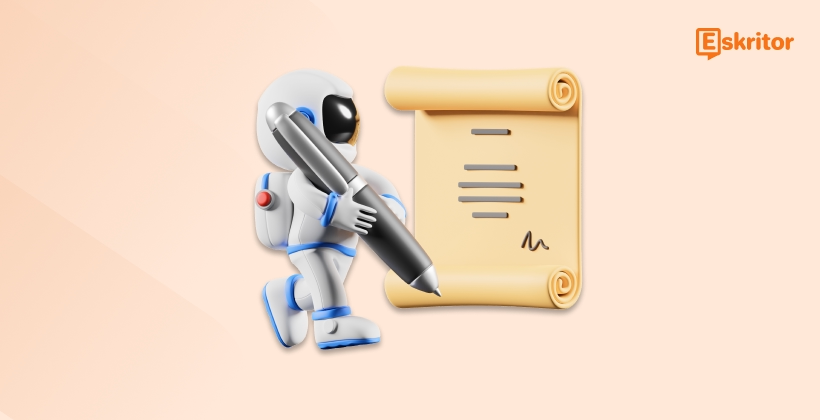How AI Writers Are Transforming Content Creation
How AI Writers Are Transforming Content Creation
Blog Article
The Future of AI Writing Technology Explained
As synthetic intelligence (AI) evolves, it remains to revolutionize exactly how we strategy modern editing practices. From grammar modification instruments to advanced content era tools, AI Editing is reshaping the way in which writers, writers, and designers improve their work. This blog examines the role AI represents in contemporary modifying and the affect it's across industries.

AI-Powered Methods Primary the Cost
AI-powered resources have become an vital section of editing workflows. Computer software fueled by normal language handling (NLP) and unit understanding is able to do responsibilities like syntax checks, stylistic recommendations, and phrase restructuring with incredible pace and accuracy.
For example, AI-based grammar checkers may recognize errors that the human eye may possibly overlook, such as for example subject-verb agreement dilemmas or misplaced modifiers. Equally, fashion innovations generated by AI make sure that tone and flow align with the supposed market, which can be invaluable for qualified editors.
These tools aren't just limited to traditional syntax corrections. They are designed for improving readability, transforming passive voice to effective style, and also paraphrasing whole paragraphs without adjusting the meaning.
Performance Matches Time Savings
Studies show that the utilization of AI tools may lower modifying time by up to 30%. Instead of poring around every word manually, writers may focus their attempts on innovative and proper components of content. This shift allows professionals to control larger volumes of text in shorter times, which is particularly valuable for industries like publishing and electronic marketing.
Furthermore, predictive AI features may spotlight continuing mistakes, supporting authors improve their abilities over time. For organizations, this means fewer methods allocated to revisions and more refined components from the comfort of the start.
Enhancing Availability and Globalization
AI's role in modern modifying stretches beyond efficiency. Advanced interpretation and localization instruments allow designers to conform content easily for world wide audiences, wearing down language barriers with precision. This technology ensures that the exact same concept may resonate with countries global while maintaining its authenticity.
AI also improves inclusivity standards by increasing convenience in content. As an example, formulas may identify perhaps non-inclusive language and recommend alternatives. This capability enables editors to improve publishing so that it resonates with varied audiences.

Striking a Harmony Between AI and Human Creativity
While AI excels in pace and accuracy, it generally does not replace human editors. Machines frequently absence the capacity to read nuance, feeling, or national situation fully. The ideal system includes AI's effectiveness with individual imagination and perception, resulting in really exceptional work.
By leveraging these technologies in modern editing methods, makers and editors equally can produce supreme quality material that aligns with the fast-paced needs of today's digital world. AI will be the potential of editing, but the individual feel will always be needed for storytelling and connection. Report this page